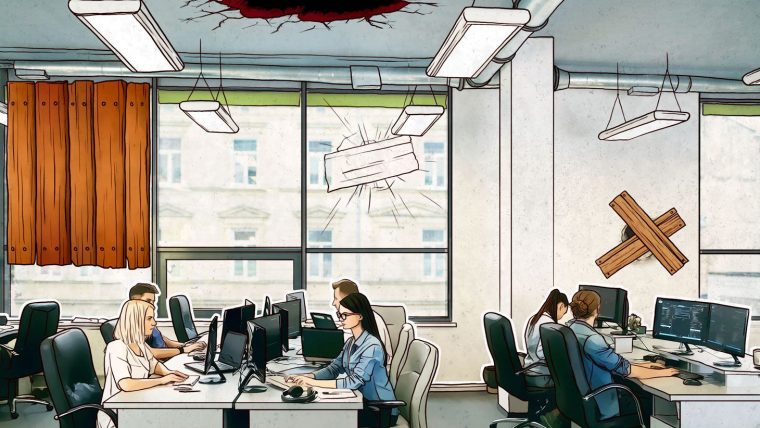Today, many people work remotely, often performing most of the tasks in this way. What does a friendly workplace mean today and will people want to work in office buildings in the coming years?
Just a few years ago, the office was primarily a place of work, and all the company’s knowledge was gathered at the headquarters of the organization – emphasizes Rafał Żukowski, an expert at Hays Poland. Currently, the reality looks different in subsequent professions and specializations. Looking at the development of technology, it can be assumed that we are heading to the time when we do not have to stay in the office while doing our job. For many employers, the aspect of employee control is still extremely important, but this can also change if it turns out that employees outside the office perform their work equally effectively – he adds.
Despite the increasing use of advanced technology in business, the vast majority of employees still work – and as the experience of employers shows – they want to stay in the office space at least part of the time. This applies to small companies, individual entrepreneurs as well as leading organizations with an international structure. However, the communicated need for even occasional cooperation in one space differs from the traditional understanding of the office.
Let’s share
There are, among others, co-working, i.e. a shared workspace. The share of this type of space in the office space market is constantly growing. Co-working is flexible workspaces for people running a business or small businesses – explains Rafał Żukowski. Although these entities could operate in apartments or use public spaces (e.g. cafes), they decide to work in office spaces, offering comfortable conditions for performing professional duties. A significant part of this type of space is also rented by large companies that locate their design teams there.


An office like a second home
It turns out that employees need an office as a meeting place to respond to their need to belong, informally feel part of the community. This basic idea is now being rediscovered. Belonging means being able to derive, give, and exchange – knowledge, insights, and opinions. In co-working spaces for tenants, meetings and workshops are organized during which they can get to know each other and discuss interesting topics. Diversity is conducive to the exchange of views, new ideas and joint ventures emerge. The sense of belonging also builds the possibility of using additional services offered to tenants. There are companies that, apart from working in shared spaces, can also rent apartments near their workplace. Another solution is to enter your own gym or enroll your children in a private school.
Flexibility, or what exactly?
Employees want flexibility at work, but this mainly applies to the ability to perform tasks from anywhere at any time, combined with the availability of attractive office space. Young people develop a completely new style of work. During the recruitment interviews, questions about the possibility of remote performance of some duties or the use of flexible working hours become a standard – emphasizes Dorota Nakonieczna, HR Business Partner at Hays Poland. At the same time, the location of the company, the standard of the office, and available amenities are important. If a company wants not only to acquire but also to retain talents, it should start introducing changes aimed at better adapting the working environment to the needs of employees.



